Uncovering the Meaning of “lost tribes” with Director Aaron Henne!
The Leichtag Foundation believes that art can be a form of action and catalyze change among those it inspires. In particular, theatre can cover topics that its audiences don’t always engage with in day-to-day life. That’s why The Hive at Leichtag Commons is excited to present theatre dybbuk’s new play, “lost tribes” on April 14 and 15.
To help break down what “lost tribes” means, we caught up with theatre dybbuk’s Artistic Director Aaron Henne, who wrote and directed the performance.
What inspired you to write “lost tribes”?
Henne: I was thinking a lot about questions of identity; who gets to tell whose story, power dynamics, subjugation and domination. I feel like we’re in a moment where on one the hand we need to stake our claim in what we believe in, but on the other we need to embrace complexity in order to take a stand that is principled and honoring of the variety of voices in our society.
What is “lost tribes” about?
Henne: There was a Northern Kingdom of Israel and a Southern Kingdom. The Northern Kingdom was where, supposedly, 10 of the 12 tribes lived. The Southern Kingdom was where two of them lived. When the Northern Kingdom was invaded and conquered by the Assyrian conquest, those 10 tribes were “lost to history.”
There have been a lot of theories about what happened to those tribes. The one which I tend to subscribe to is that they were conquered and assimilated, either by the Assyrians or by their own tribal brethren when they came as refugees to the southern kingdom. So the piece asks, “what is the desire to reclaim that which is lost?” Perhaps it is a desire to reconnect with a lost part of ourselves that can help us to be empathetic with the struggle of others.
How did you prepare to create a performance?
Henne: Our team came together about two years before the premiere. We start meeting 18 months before the show and I bring them a four-page document that holds basic information related to the show’s themes, plus any additional research I’ve done, notes from meeting with scholars, etc…Over the course of the next year, we hold monthly meetings where I bring in new script pages with more research and the cast responds with their thoughts and questions.
We also have physical development workshops that explore how we move together because there’s a heavily choreographed element to the work. In addition, I do one-on-one studies with scholars to help contextualize the information I’m seeing. I also have individual meetings with our choreographers, composer and designers that allow us to explore the piece’s elements in a manner that is cohesive and progressive.
What are the differences between this show and the original draft?
Henne: In an early draft we thought we’d have a lot of shadow puppetry, but we discovered that it wouldn’t be the proper medium to tell the story. We did, however, incorporate much of the learning that we did in our shadow explorations into the overall staging.
The narrator’s role in the piece has greatly evolved since the original draft, especially his relationship to what he’s presenting. We really had to come to understand what his relationship is to that which he is guiding us through.
How does the message of ‘lost tribes” engage the audience, from those who watch for the themes to those who watch for entertainment?
Henne: There’s stylized and choreographed movement, there’s percussion and there’s singing so I think one way the audience will relate is because there is a lot to take in and enjoy. It allows you multiple entry points because you have the history, the music and the message that allow you a way in.
Also, because it is dealing with so many perspectives throughout history, even if you’re not from the Jewish tradition, you will find something that relates to your heritage or your understanding of witnessing people come together and forming something. Even if it’s not your heritage, you’ll know that story because we all know what it is to feel separate and to find ourselves belonging.
The piece brings us on a trajectory to the modern day. It directly engages with some things in American history…So when we land here, one will relate because of the nature of the play being a direct experience of what one is living or what one knows what’s happened in this land, for better or for worse.
———
In hosting this performance in its cultural program calendar, The Hive at Leichtag Commons is currently the only venue presenting “lost tribes” outside of Los Angeles County.
The production may build on layers of themes and stories, but anyone will relate to and understand its connection to contemporary themes through its engaging entertainment value and language.
“lost tribes” premieres for two nights only in The Hive at Leichtag Commons on April 14 and 15. You can find more information on Facebook or purchase your tickets on Eventbrite for $18.
We hope you’ll treat yourself to experience the story of the “lost tribes” with us!



 Black, Jewish and Queer. These three identities weave the fabric of who I am, but it took a long time to believe that they could exist together.
Black, Jewish and Queer. These three identities weave the fabric of who I am, but it took a long time to believe that they could exist together.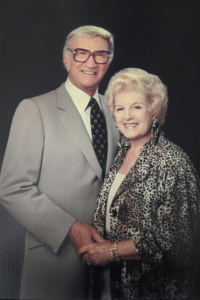 Lee and Toni Leichtag established the Leichtag Foundation in 1991 following the sale of their business. Lee and Toni were lifelong entrepreneurs with a passion for innovation and for supporting talent. They believed that only with big risk comes big reward. Both born to families in poverty, Toni to a single mother, they strongly believed in helping those most in need and most vulnerable in our community. While they supported many causes, their strongest support was for young children and the elderly, two demographics who particularly lack voice in our society.
Lee and Toni Leichtag established the Leichtag Foundation in 1991 following the sale of their business. Lee and Toni were lifelong entrepreneurs with a passion for innovation and for supporting talent. They believed that only with big risk comes big reward. Both born to families in poverty, Toni to a single mother, they strongly believed in helping those most in need and most vulnerable in our community. While they supported many causes, their strongest support was for young children and the elderly, two demographics who particularly lack voice in our society. Lifelong Baltimoreans, Rabbi George and Alison Wielechowski and their sons, 11-year-old Lennon and 9-year-old Gideon, are more than pursuing the good life in Southern California. Having moved to San Diego more than three years ago, they are fulfilling a lifelong dream.
Lifelong Baltimoreans, Rabbi George and Alison Wielechowski and their sons, 11-year-old Lennon and 9-year-old Gideon, are more than pursuing the good life in Southern California. Having moved to San Diego more than three years ago, they are fulfilling a lifelong dream.
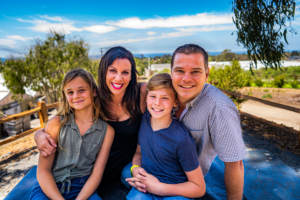


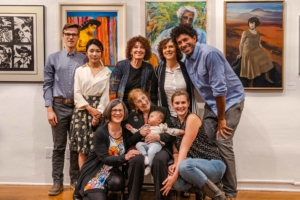
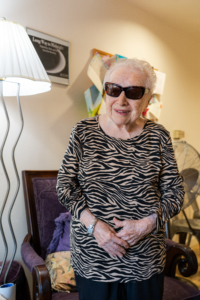
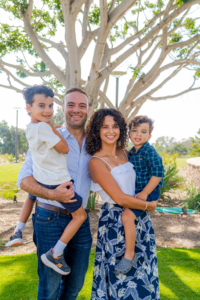
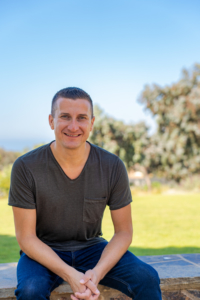 You would think that as the executive director of San Diego LGBT Pride, Fernando Zweifach López Jr., who uses the pronoun they, has done all the coming out they possibly can. A queer, non-binary individual who has worked for many years on civil rights issues, López also speaks openly and often about their father’s family, Mexican-American migrant workers who tilled the fields of rural California.
You would think that as the executive director of San Diego LGBT Pride, Fernando Zweifach López Jr., who uses the pronoun they, has done all the coming out they possibly can. A queer, non-binary individual who has worked for many years on civil rights issues, López also speaks openly and often about their father’s family, Mexican-American migrant workers who tilled the fields of rural California. Stacie and Jeff Cook understand commitment. They live it.
Stacie and Jeff Cook understand commitment. They live it.
